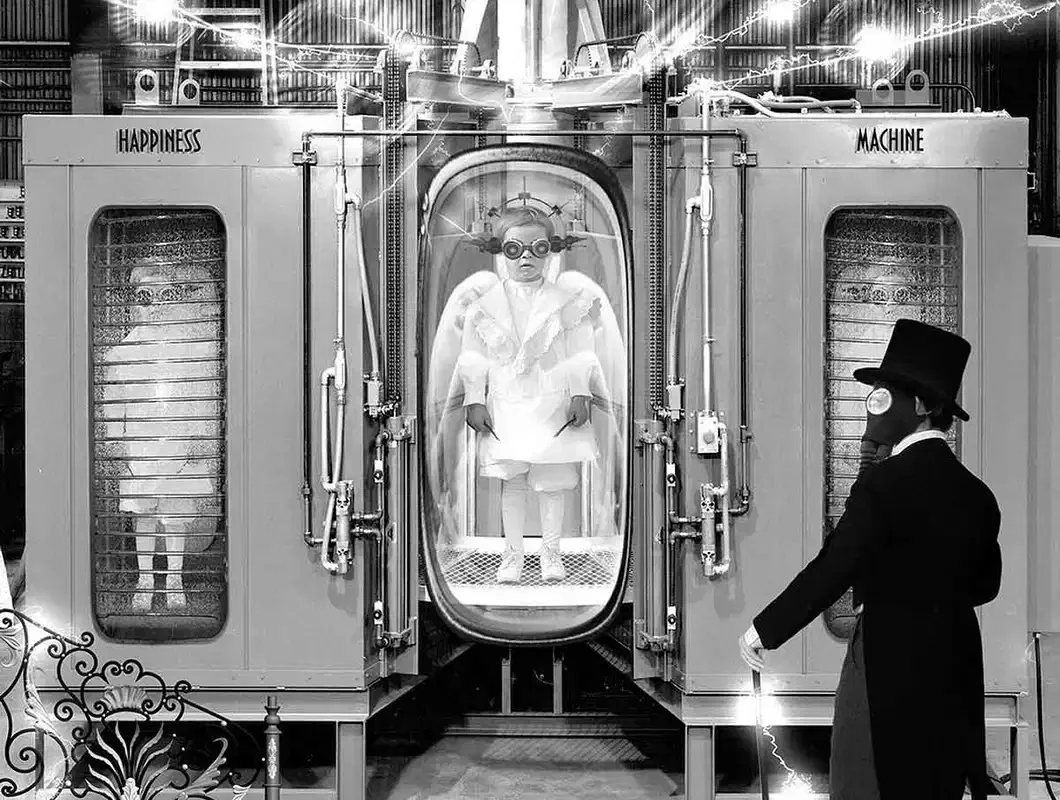The Experience Machine & Fantastic Mr.Fox
“I don’t want to live in a hole anymore.” - Mr. Fox
These words of Mr. Fox, uttered at the dinner table to a loving wife, in front of his own healthy child, under a “roof” in a small, but satisfactory kitchen which he comes back to after a long day working a perfectly respectable and stable job as a journalist, may seem ungrateful and absurd. Within society, the general consensus regarding happiness tends to revolve around comfort, security and social respectability. But Mr. Fox’s dissatisfaction challenges this assumption, suggesting that a life full of safety and surface-level contentment may not be enough, especially when lacking authenticity. Mr. Fox rejects this inauthentic version of a “happy life”, for truth; to reclaim his identity as a thief and embrace what it truly means to be a wild animal.
Now, what if Mr. Fox were really you—an individual who works a stable 9-5 job, who comes home to a lovely house with a loving family. Imagine you feel content with your life, until you realize that your life is really a simulation, and that your brain is secretly hooked up to a machine fabricating every second of your reality. In fact, this machine can not only simulate your mediocre life, but also your ideal and perfect life: one in which you win an Olympic medal or become a millionaire or become debt free. You won’t know you are in a machine when you are “plugged in”, since you will only feel a life of endless pleasure and success. The choice then is yours: do you choose to (stay) plug(ed) in forever?
In many of our cases, and in Mr. Fox's case, the answer is no, and the reason, according to Robert Nozick, creator of what I had just described as the Experience Machine thought experiment, is because we crave genuine experiences, authenticity and agency over pure hedonism and happiness. We don’t want to feel like we are doing meaningful things, we want to actually do them and experience all that life has to truly offer, risks, disappointment and all. Mr. Fox’s decision to return to his previous life of danger and crime, despite having a peaceful, decent life in his hole in the ground, echoes the claims of this experiment. Although his life working as a writer is stable, it does not seem real to him, partially because he does not associate journalism with his wild animal nature, and partially because no one actually reads his work. But even if he were to be able to “plug into” a life where he would be able to hunt for fun and pleasure, there is evidence that Mr. Fox would still reject that life, as his desires for his old thrilling lifestyle also mainly stem from his ability to interact with real nature, to get caught and escape with his tail between his legs, and to bring home food to genuinely help feed his family. The unknowns that comes with survival in the real wild is what drives Mr. Fox to act, rather than cheap thrills and other ways of achieving happiness, and it is this fact that deeply supports the point being made by the Experience Machine thought experiment.
By refusing to settle for a life that is merely pleasant on the surface level, Mr. Fox, like many of us, embraces the idea that happiness without authenticity is bare and hollow, much like a life plugged into the Experience Machine. With the quote “not wanting to live in a hole anymore” mirroring an individual sick and tired of being “plugged into” a life that isn’t authentically their own, we understand that meaning and agency are also essential components of a fulfilling life, even when they come with risk, hardship and being caught for stealing chickens.



